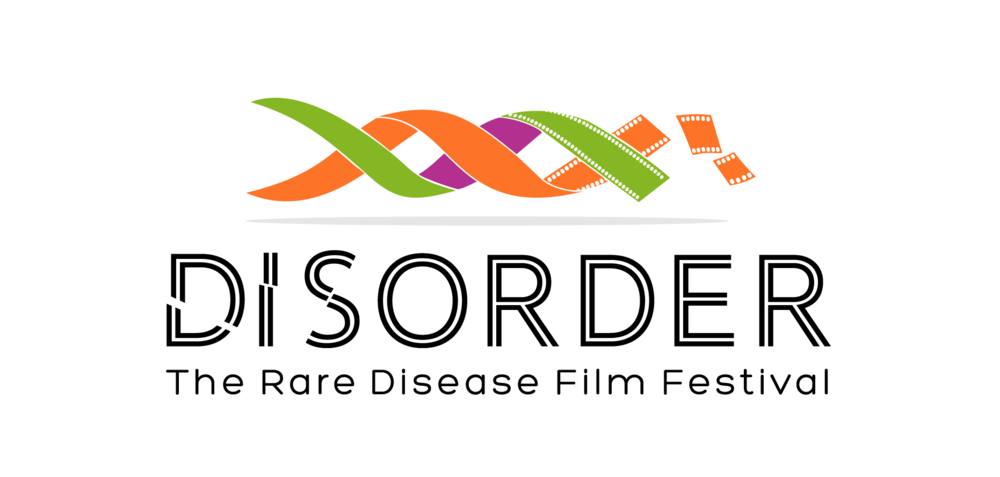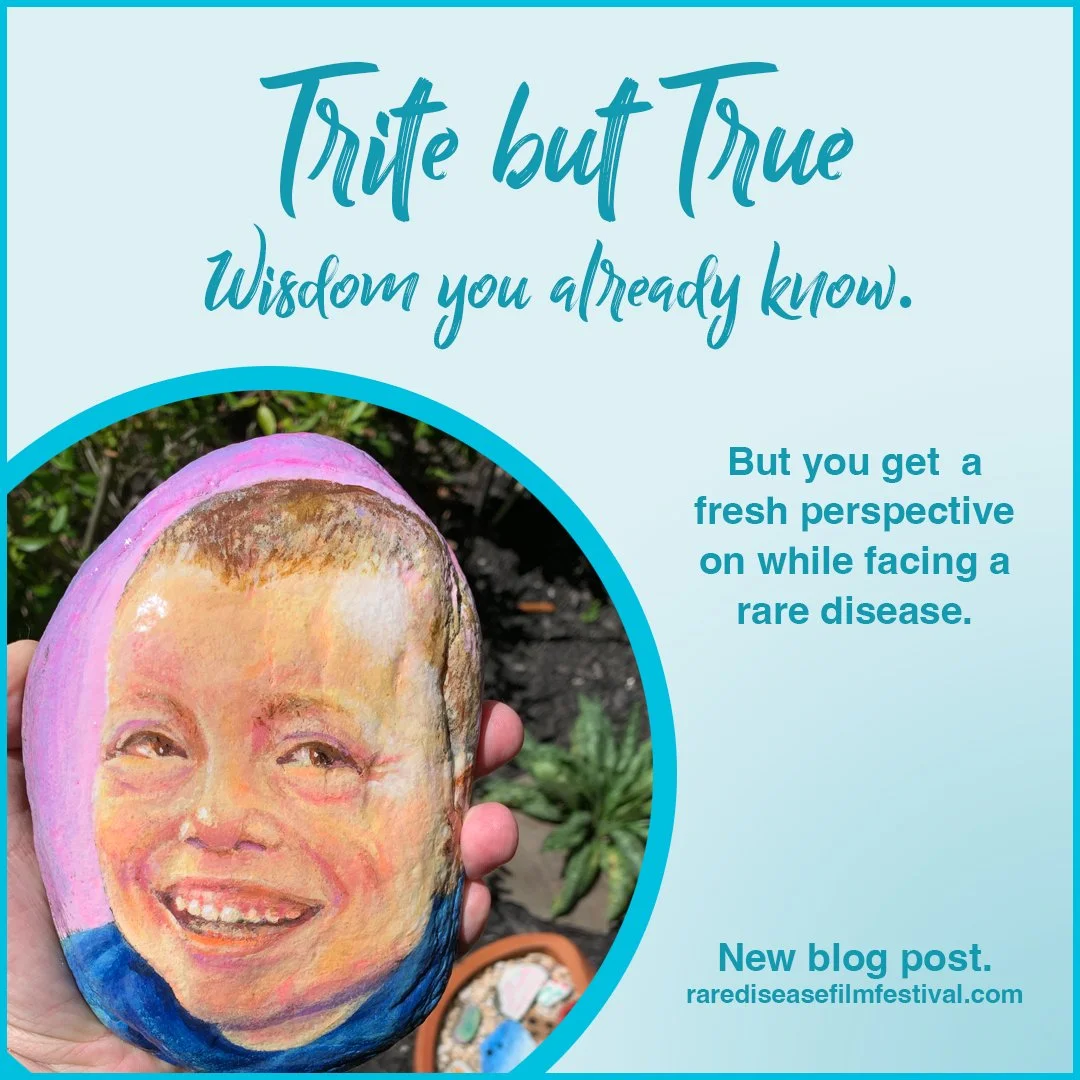By Daniel DeFabio
Over the years as I've told the story of my son Lucas' life with the rare disease Menkes Syndrome, people often ask if there's any wisdom I've gained in facing that struggle. First let me say this is very flattering to think anyone would turn to me for advice or wisdom. On one hand I feel I did gain a mountain of wisdom. On the other hand I feel like to express any of it in words, I fall back on well-worn phrases we've all heard before. Can this really be the best I have to offer? There's nothing new in this. But that's the point I think. These phrases got to be well-worn for a reason. For years, in some cases for centuries, they've been spoken as the best advice we humans have stumbled upon. The trick I've discovered is not knowing the advice, but embracing it, adopting it, living it. To the extent that there may be a “gift” in living a life touched by a rare or fatal disease, that gift is probably something like an openness or a need to change our perspective and expectations. So here I'll attempt to collect several of these things we already know we should do but perhaps aren't really doing.
[ Many of these may feel duplicative, I've tried to group similar ones together. ]
Live for today, no one is guaranteed a tomorrow. We could get hit by a bus tomorrow.
Live in the moment.
What will you do with your one wild and precious life? - Mary Oliver
These boil down to don't waste your time because you can't be sure how much you have. This of course was thrown into stark relief for our family when we were told my first child would likely live only three to ten years. The mind leaps to bucket-list mode. Do we need to pack in the experiences? If Lucas won't live as long should we be sure he goes to the theme park this year and not delay til next year?
But it's more than a wish list or bucket list. It's balancing tricky priorities of the existentially urgent medical needs with the quality of life needs.
My friend Allison Muedder says this heartbreakingly in a film about her son who has Hunter Syndrome. In the film “Finn” she says “We're pushing this sweet three-year-old to learn as much as he can. Because we know he's going to lose it. That's really messed up.”
Most of us in America, if we have our basic economic needs covered, worry mostly about what we glibbly call first-world problems. I don't have a great phrase for the opposite of first-world problems. Is it third-world problems? That sounds terrible and inaccurate and probably borders on cultural appropriation. Do we call these existential problems? True enough, few things can pull you out of your head like fighting for your life (or your child's). And in a perverse way this can be liberating. When sweating the big stuff we get permission to not sweat the small stuff. But here's the kicker: we never needed that permission. Certainly not in the form of a rare disease diagnosis. Any of us and all of us should feel allowed to skip the small stuff with or without any special circumstances to put us in that mindset.
Don't sweat the small stuff and it's all small stuff.
First world problems (are not really problems)
Grant me the serenity to accept the things I cannot change, courage to change the things I can, and wisdom to know the difference.
Be the change you want to see in the world – Gandhi didn't say exactly this and what he did say is more about changing ourselves internally first in order to affect the external world. So often in rare disease life we discover something is missing or does not work as it should. Can we be the ones to create it or make it work?
Everybody's got their something. (Robin Roberts)
You have no idea the struggles others are facing.
Comparison is the thief of joy. (credited to Teddy Roosevelt)
A gratitude attitude is a huge help. Being thankful for what you have that is good rather than frustrated by what you do not have. This isn't always easy and should not be allowed to lapse into toxic positivity where we ignore or undermine the struggles.
No pain no gain.
Life is only meaningful in the struggle.
“The bravest sight in the world is to see a great man struggling against adversity.” - Seneca
“The purpose of suffering is to teach us empathy.” - I learned this one from Cristol O’Loughlin of Angel Aid Cares.
And so it goes – Vonnegut see also “Sometimes it bes like that”.
“Vulnerability sounds like truth and feels like courage.” - Brene Brown
“Courage doesn’t always roar. Sometimes courage is the quiet voice at the end of the day, saying, “I will try again tomorrow.” - Mary Anne Radmacher.
““One day you will tell your story of how you overcame what you went through and it will be someone else’s survival guide.” – Brene Brown
We all start as newbies and it's natural to question if we have any real expertise to offer. Add to this imposter syndrome. These can combine to make us reluctant to share our story. I've found myself wondering if I'm ranting, or venting. I am telling my son's story for no one's benefit but my own? The answer consistently comes back no. Someone needs to hear what I've shared. You may not know who. Until the disease you face is cured there will come generations behind you, each hungry to learn what little there is out there that might guide them.
Hell is other people.
In my 20s I learned this from Jean Paul Sartre. It took me until my 40s to learn the opposite is just as true. Heaven too is other people. Or as Elie Wessel puts it “Just as despair can come to one only from other human beings, hope, too, can be given to one only by other human beings.”
Meet people more than halfway.
This one may be original to me. What I mean by it is if two parties each meet each other halfway, they may assume they have each done enough. And the result will be a connection. But it may be a weak connection. Imagine two pieces of lumber trying to span a four foot space. Would you like Two pieces each of two feet long? Isn't it a much stronger connection with one piece two feet long and the other 3 feet long? Be prepared to go more than the minimum halfway distance and the rewards will increase through stronger connections.
Don't be upset that you did not get what you did not ask for.
“You miss 100% of the shots you do not take” Wayne Gretsky.
So often I've felt “how can they not know this is what I need or this is what I'm going through”. In my better moments I check myself and ask: did I tell them? Similarly when people ask how can they help –and they will ask-- be prepared with a specific answer. Lacking that they may not ask again, they may assume you don't really need any help. Or they may just be afraid of volunteering the wrong kind of help.
When tragedy strikes, look for the helpers.
Not so ancient wisdom from Fred Rogers. I've been surprised and amazed by those who stepped up to help my family. It was often not the people I'd expect. Discovering their why lead to much deeper relationships with them. Typically their why had similarities to my own, perhaps with a degree of remove. They had a cousin with complex medical needs for example. But beyond “look for the helpers”, be one and you'll find you attract others.
I am sure there are more tried and true phrase of wisdom and life advice I should have included here. Maybe you can add your favorites and what they mean to you as a comment.

